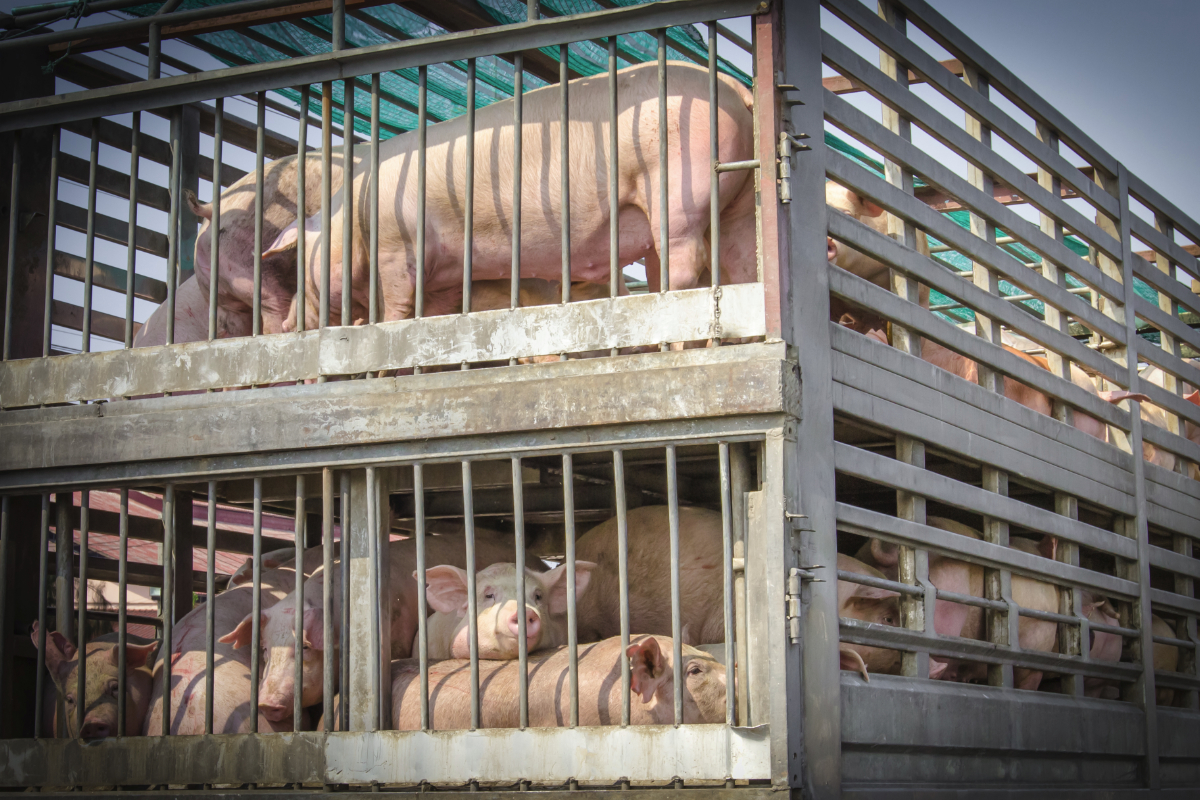WASHINGTON — Livestock haulers will get an additional 90 days before potentially having to conform to the U.S. Department of Transportation’s (D.O.T.) Hours of Service (H.O.S.) regulations requiring trucks be equipped with Electronic Logging Devices (E.L.D.s). The D.O.T.’s Federal Motor Carrier Safety Administration (F.M.C.S.A.) on March 13 announced an additional 90-day temporary waiver from the E.L.D. rule for agriculture-related transportation.
“We continue to see strong compliance rates across the country that improve weekly, but we are mindful of the unique work our agriculture community does and will use the following 90 days to ensure we publish more helpful guidance that all operators will benefit from,” said Ray Martinez, F.M.C.S.A. Administrator.
Additionally, during the 90-day waiver period, the F.M.C.S.A. will publish final guidance on both the agricultural 150 air-mile hours-of-service exemption and personal conveyance. The F.M.C.S.A. will continue its outreach to assist the agricultural industry and community regarding the E.L.D. rule.
“If worse comes to worst and your truck full of corn has to sit on the side of the road for 10 hours, it’s annoying but it’s not the end of the world. It’s not a truck full of pigs or a truck full of cattle.” — Michael Formica, N.P.P.C.
In mid-December, more than 3 million commercial truckers were subject to the E.L.D. mandate. However, the National Pork Producers Council (N.P.P.C.) successfully lobbied the D.O.T. to grant drivers of livestock trucks a 90-day reprieve due to the nature of the freight they haul. That reprieve was set to expire March 18. During the initial 90-day waiver period, lobbying carried on both in favor of and against the mandate as both sides weighed in on electronically enforcing H.O.S. rules that limit driving time to 11 hours per day and limit drivers from being on duty for more than 14 hours during a 24-hour period. Once those limits are reached, drivers must immediately pull over and wait 10 hours before resuming their trip. This may be inconvenient for a typical truck driver but will cause more issues for livestock haulers whose top priority is the welfare of their load.
“They’ve applied a one-size-fits-all solution,” said Michael Formica, assistant vice-president and legal counsel, domestic policy for the N.P.P.C. “There is a lot of pressure that if they give us one they’re going to have to grant many more."
However, Mr. Formica said, the driver pulling a trailer full of feed that would be required to pull over after hitting the H.O.S. threshold does not have the burden of considering the well-being of scores of animals that livestock haulers have.
 “If worse comes to worst and your truck full of corn has to sit on the side of the road for 10 hours, it’s annoying but it’s not the end of the world,” Mr. Formica said. “It’s not a truck full of pigs or a truck full of cattle.”
“If worse comes to worst and your truck full of corn has to sit on the side of the road for 10 hours, it’s annoying but it’s not the end of the world,” Mr. Formica said. “It’s not a truck full of pigs or a truck full of cattle.”
Beginning April 1, full enforcement of the E.L.D. rule begins.
“Carriers subject to Federal Motor Carrier Safety Regulations (F.M.C.S.R.s) that do not have an E.L.D. when required will be placed out-of-service,” the F.M.C.S.A. said. “The driver will remain out-of-service for 10 hours in accordance with the Commercial Vehicle Safety Alliance (C.V.S.A.) criteria. At that point, to facilitate compliance, the driver will be allowed to travel to the next scheduled stop and should not be dispatched again without an E.L.D. If the driver is dispatched again without an E.L.D., the motor carrier will be subject to further enforcement action.”
U.S. Agriculture Secretary Sonny Perdue applauded Transportation Secretary Elaine Chao’s decision to issue the extension.
“The E.L.D. mandate imposes restrictions upon the agriculture industry that lack flexibility necessary for the unique realities of hauling agriculture commodities,” Mr. Perdue said. “If the agriculture industry had been forced to comply by the March 18 deadline, live agricultural commodities, including plants and animals, would have been at risk of perishing before they reached their destination. The 90-day extension is critical to give the D.O.T. additional time to issue guidance on hours-of-service and other E.L.D. exemptions that are troubling for agriculture haulers.
 “Current E.L.D. technologies do not recognize the hours-of-service exemptions for agriculture that are in federal law. This is a classic example of a one-size-fits-all federal regulation that ignores common sense to the detriment of sectors like agriculture.
“Current E.L.D. technologies do not recognize the hours-of-service exemptions for agriculture that are in federal law. This is a classic example of a one-size-fits-all federal regulation that ignores common sense to the detriment of sectors like agriculture.
“I applaud Secretary Chao for recognizing these obstacles and giving extra time for compliance while the D.O.T. issues guidance. While public safety is a critical concern for all of trucking, the safety of living agricultural commodities in transport must also be considered.”
The waiver and guidance will be published in the Federal Register.




